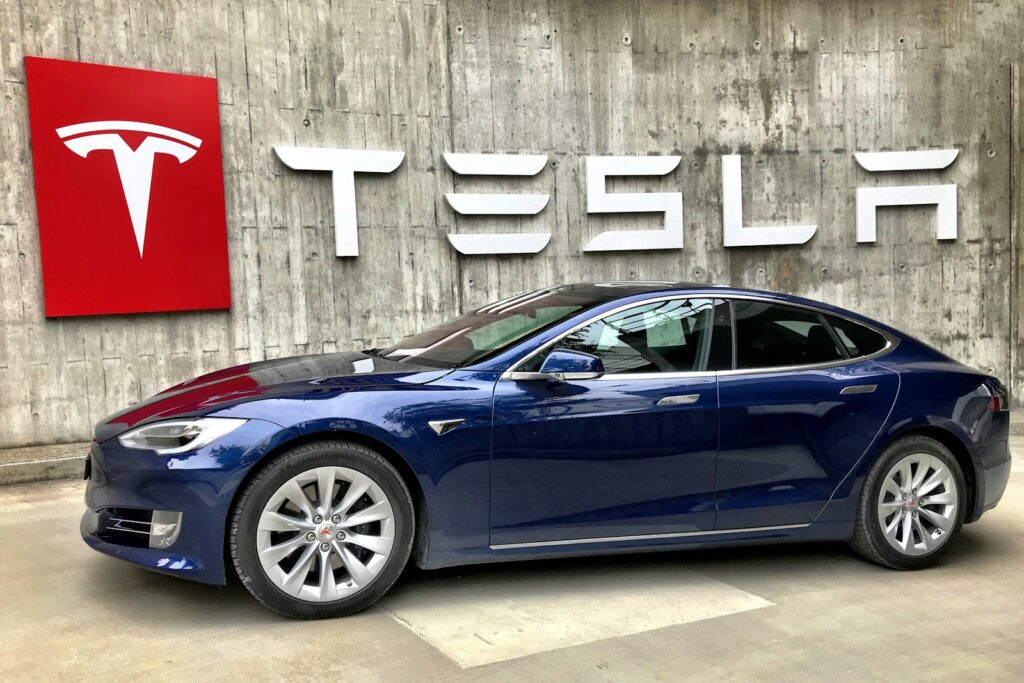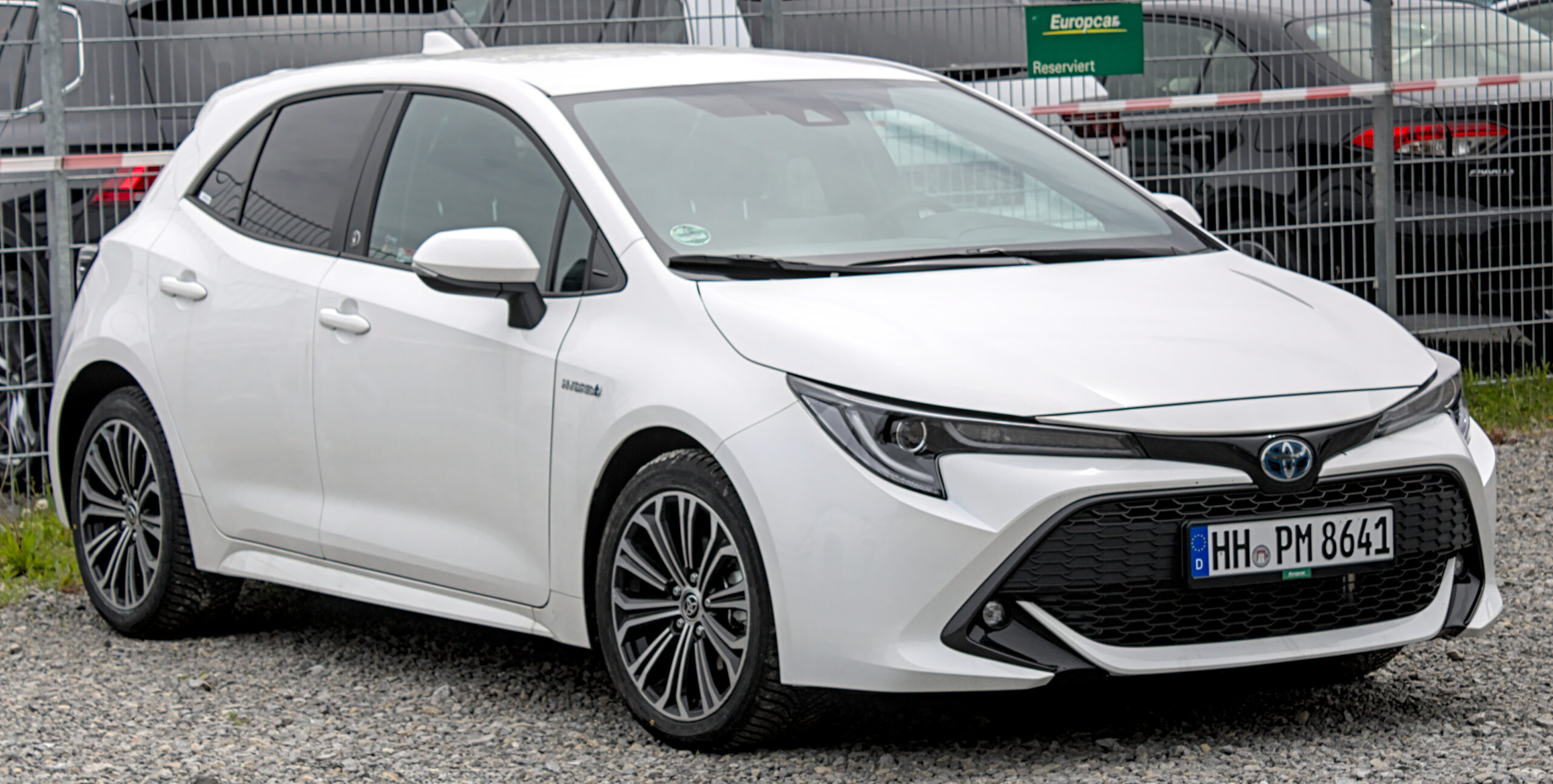
The urban landscape demands a specific kind of vehicle: efficient, maneuverable, and reliable. For years, the Toyota Corolla has been a staple in this segment, and with the 2025 Corolla Hybrid, Toyota aims to solidify its position. But does this latest iteration truly excel as a city car, or are there underlying compromises that prospective buyers should be aware of when navigating the concrete jungle?
In the highly competitive compact hybrid market, the 2025 Corolla Hybrid presents itself as an impressively efficient four-door, often more accessible than its sibling, the revered Prius. Its appeal largely centers around a compelling value proposition, offering a blend of commendable fuel economy and practical utility that resonates with many daily commuters. However, a deeper dive into its multifaceted characteristics reveals a complex picture, with both highly praised features and areas that warrant careful consideration, especially for those prioritizing a seamless urban driving experience.
This in-depth analysis, crafted in the rigorous Car and Driver style, will dissect the 2025 Toyota Corolla Hybrid’s various facets through objective evaluation and driver-focused insights. We’ll explore everything from its on-road performance and real-world fuel efficiency to interior comfort, build quality, and technological advancements, drawing insights from both professional assessments and diverse owner experiences. Our goal is to provide a comprehensive understanding of whether this compact hybrid truly stands out as the ideal companion in the bustling city environment, scrutinizing its capabilities with precision and an unbiased perspective.
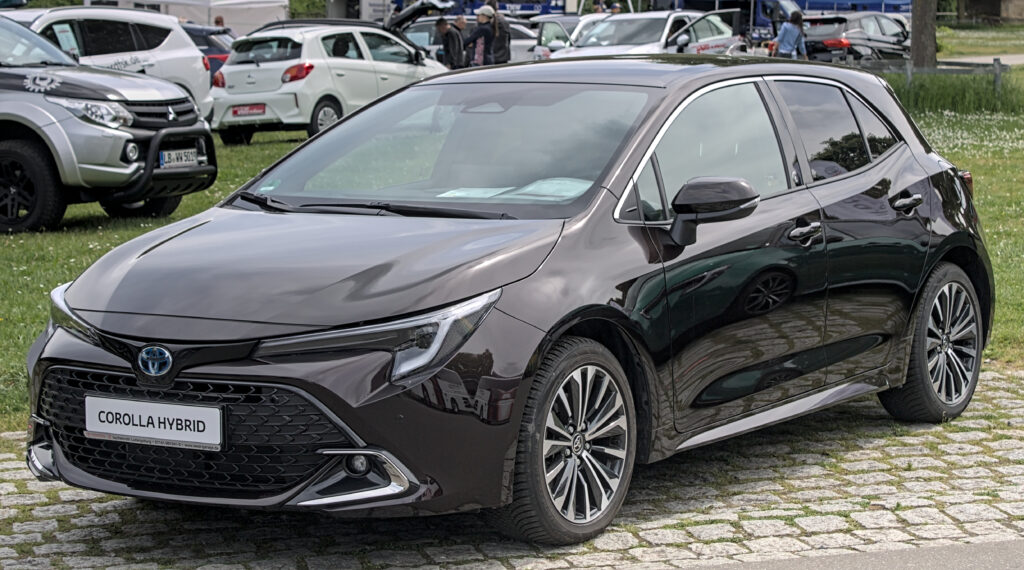
1. **Overall Impression & Value Proposition**
The initial reception for the 2025 Toyota Corolla Hybrid paints a nuanced picture, blending enthusiastic owner satisfaction with more critical professional evaluations. One owner, Bill G from Bowling Green, VA, awarded his 2023 Corolla LE Hybrid a stellar 5 out of 5 stars, exclaiming “Wow!” and noting that 51 out of 53 people found his review helpful. This sentiment highlights a strong positive experience, particularly for those who prioritize a reliable daily driver without needing all “the fancy stuff.”
From a broader perspective, the Corolla Hybrid is consistently positioned as a compact, impressively efficient four-door that offers greater accessibility than the new Prius. We at Car and Driver perceive it as a “cheap, efficient runabout,” a characterization that underscores its primary appeal as a cost-effective solution for everyday transportation needs. This focus on efficiency and affordability makes it a compelling option for a significant segment of the market.
However, the value proposition is not without its caveats. While we generally find the Corolla Hybrid to be a likable package, we also acknowledge that cost-cutting measures are apparent, particularly in the interior’s material quality and the relative lack of sound insulation. This suggests a trade-off, where the accessible price point might come at the expense of certain premium finishes or a quieter cabin experience. Consequently, we recommend that potential buyers carefully weigh these factors against their budget and expectations for interior refinement.
Conversely, a highly critical owner review painted a starkly different picture, labeling the car a “stupid car” and a “piece of garbage” after three years and 74,000 miles. This individual vehemently stated, “almost 30,000 dollars. DO BETTER,” indicating profound dissatisfaction with its perceived quality and durability over the long term. Such a divergent experience highlights that while many find satisfaction, the ownership journey can vary dramatically, emphasizing the importance of thorough personal evaluation beyond initial impressions.
Car Model Information: 2019 Land Rover Range Rover Sport HSE
Name: Toyota Corolla
Caption: Twelfth generation model (2020, hatchback)
Manufacturer: Toyota
Aka: unbulleted list
Production: November 1966 – present
Class: unbulleted list
Predecessor: Toyota Publica
Categories: 1970s cars, 1980s cars, 1990s cars, 2000s cars, 2010s cars
Summary: The Toyota Corolla (Japanese: トヨタ・カローラ, Hepburn: Toyota Karōra) is a series of compact cars (formerly subcompact) manufactured and marketed globally by the Japanese automaker Toyota Motor Corporation. Introduced in 1966, the Corolla has been the world’s best-selling automobile of all time since 1997, when it surpassed the Volkswagen Beetle. Toyota reached the milestone of 50 million Corollas sold over twelve generations in 2021.
The name Corolla is part of Toyota’s naming tradition of using names derived from the Toyota Crown for sedans, with “corolla” Latin for “small crown”. The Corolla has always been exclusive in Japan to Toyota Corolla Store locations, and manufactured in Japan with a twin, called the Toyota Sprinter until 2000. From 2006 to 2018 in Japan and much of the world, and from 2018 to 2020 in Taiwan, the hatchback companion had been called the Toyota Auris.
Early models were mostly rear-wheel drive, while later models have been front-wheel drive. Four-wheel drive versions have also been produced, and it has undergone several major redesigns. The Corolla’s traditional competitors have been the Nissan Sunny, introduced the same year as the Corolla in Japan and the later Nissan Sentra, Subaru Leone, Honda Civic and Mitsubishi Lancer. The Corolla’s chassis designation code is “E”, as described in Toyota’s chassis and engine codes.
Get more information about: Toyota Corolla
Buying a high-performing used car >>>
Brand: Toyota Model: Corolla Hybrid
Price: $27,489 Mileage: 77,935 mi.
Read more about: Thirsty? 11 Bottled Waters We’re Definitely Avoiding This Summer: Your Guide to Smarter Sips
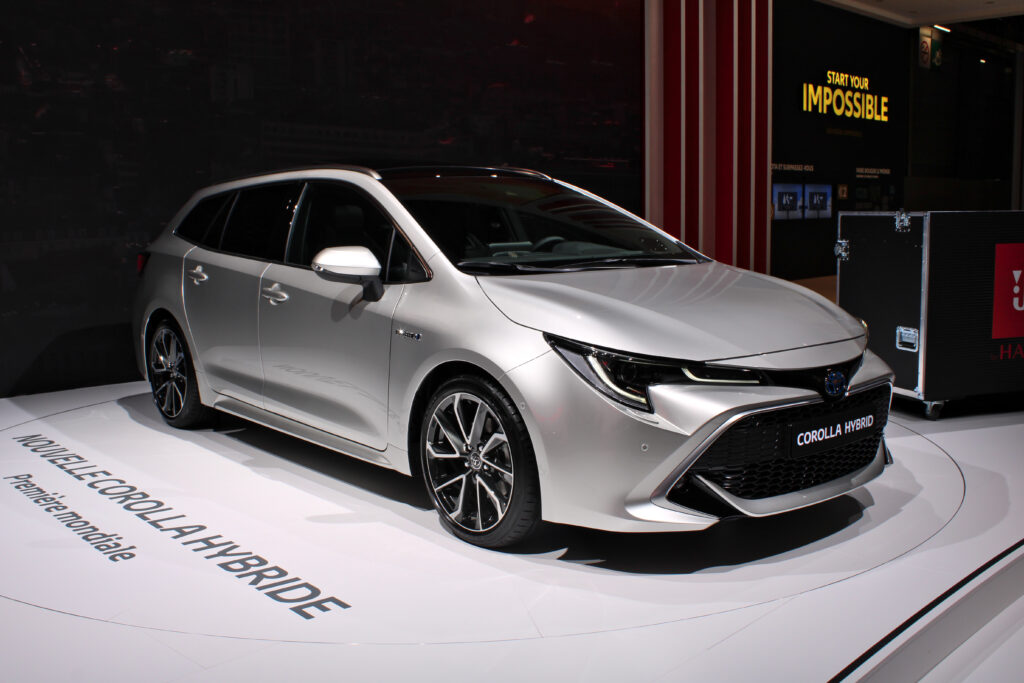
2. **Performance & Acceleration**
Performance in the 2025 Corolla Hybrid presents a dichotomy, with owner perceptions often differing from instrumented test results. Bill G, for instance, found his vehicle “quick off the line, surprisingly quick – not Mustang GT quick but more than 138 horsepower quick.” He noted that while it “starts lacking juice around 45-50,” the electric motor assist effectively “keeps the acceleration going up to highway speeds,” providing a sense of adequate propulsion for everyday driving scenarios.
However, our own rigorous testing at Car and Driver provides a more objective assessment, highlighting a distinct limitation. The 2025 Corolla Hybrid’s powertrain, which pairs a 1.8-liter inline four-cylinder with a pair of electric motors and a CVT, delivers a combined output of 138 hp and 105 lb-ft of torque. This translates to a 0–60 mph acceleration time of 10.3 seconds for the FWD variant, improving slightly to 9.7 seconds with the optional AWD system. These figures indicate that the Corolla Hybrid is “at least 1.5 seconds slower than a standard Corolla,” placing it firmly in the slower end of its class.
This lackluster performance is not just a statistical curiosity; it can have practical implications, particularly in city driving scenarios where quick maneuvers are often necessary. We’ve noted that the Corolla Hybrid is “so slow, it could get in the way of merging or passing—you’ll notice the lackluster performance.” While 0–60 mph times may not be the top priority for most small hybrid shoppers, this deficit could genuinely impact confidence and safety during highway merges or overtaking slower traffic, suggesting it might not always keep pace with faster urban rhythms.
For context, its close sibling, the new-for-2024 Prius, achieves a significantly brisker 0–60 mph time of 7.2 seconds. This comparison underscores the performance gap within Toyota’s own hybrid lineup and serves as a critical benchmark. While the Corolla Hybrid might feel surprisingly spry off the line in light city traffic, its overall acceleration capabilities fall short, a crucial detail for drivers who might encounter situations demanding more immediate power.
Read more about: The Ultimate 2025 Guide: Top 10 Fuel-Efficient Road Trip Vehicles Balancing Performance, Space, and Unrivaled Comfort
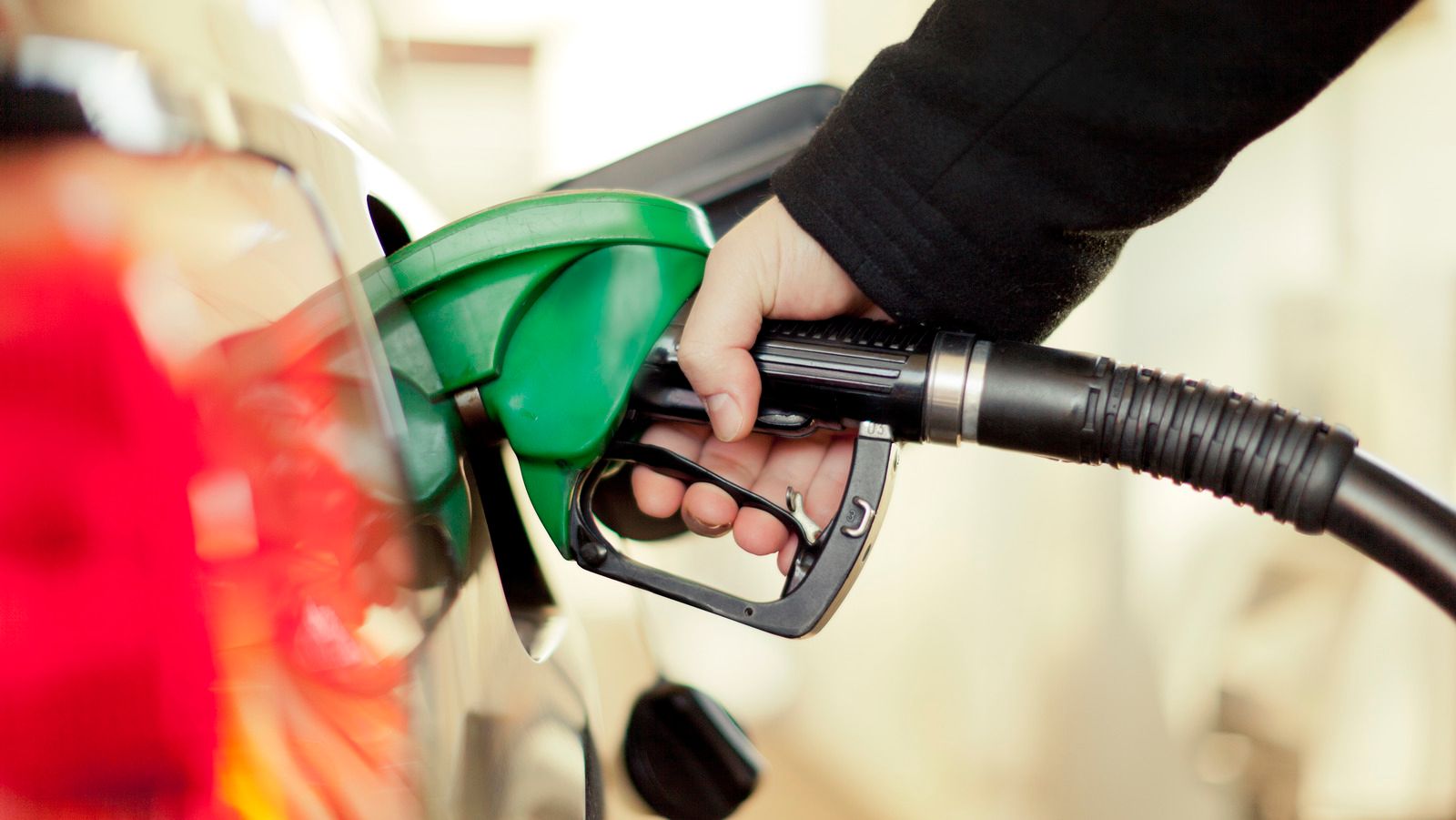
3. **Fuel Efficiency**
The 2025 Toyota Corolla Hybrid truly shines in the realm of fuel efficiency, living up to its hybrid designation with impressive figures that directly benefit city commuters. One owner, Bill G, reported observing “55.0mpg combination city/highway” during his initial two weeks and 500 miles of ownership. He shared, “I’ve had it 2 weeks and 500 miles and just filled it up from 1/4 tank. So judge for yourself,” implying that his real-world experience closely aligns with or even exceeds official estimates.
From a technical standpoint, the 2025 Corolla Hybrid achieves an EPA-estimated “up to 50/43 mpg city/highway.” This represents a significant improvement over the standard Corolla, which is rated at 32/41 mpg. The substantial gain in city mileage is particularly relevant for the target audience of this article, as it directly translates to fewer trips to the gas station and reduced operating costs in stop-and-go urban environments.
The efficiency gains of the hybrid powertrain are undeniable, making it a compelling choice for drivers looking to minimize their environmental footprint and fuel expenditures. This superior fuel economy positions the Corolla Hybrid as a strong contender in its class, especially when compared to its conventionally powered counterpart.
While the Corolla Hybrid’s efficiency is excellent, it’s worth noting its sibling, the new-for-2024 Prius, still holds an edge, achieving “up to 57/56 mpg.” This comparison illustrates that while the Corolla Hybrid offers outstanding fuel savings, there are other options within the Toyota lineup that push the boundaries of hybrid efficiency even further. Nevertheless, for its price point and segment, the 2025 Corolla Hybrid delivers a highly competitive and genuinely impressive fuel economy package that is a clear advantage for city driving.
Read more about: Mastering Winter Roads: Your Essential Guide to Car Winterization and Preventing Costly Breakdowns
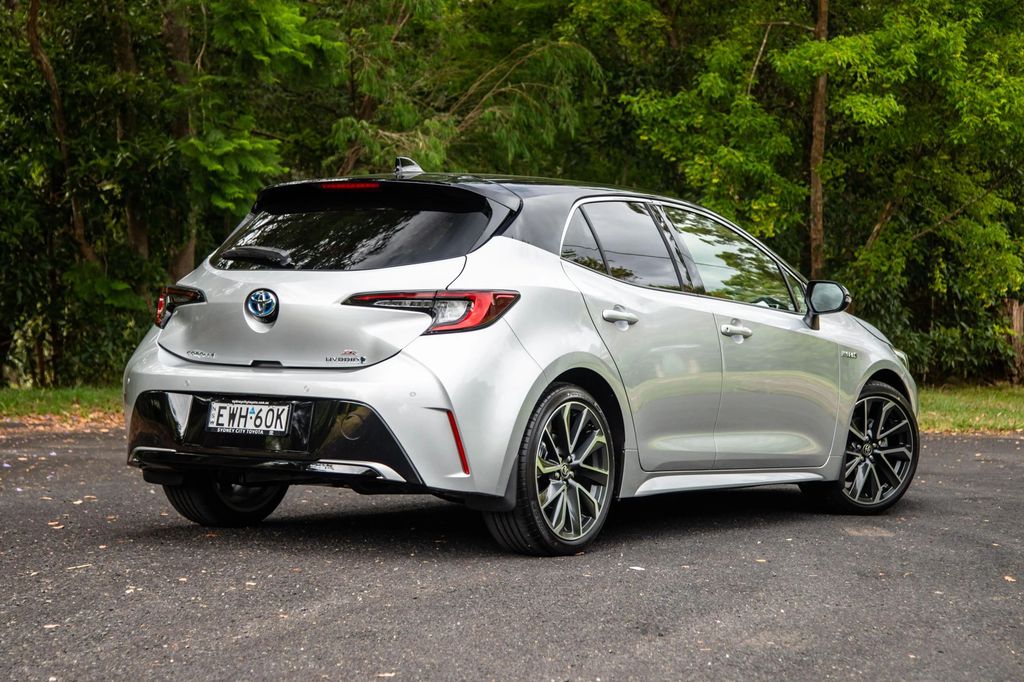
4. **Ride Comfort & Noise**
The assessment of the 2025 Toyota Corolla Hybrid’s ride comfort and cabin acoustics presents a stark contrast between various reports. One owner, Bill G, unequivocally declared the vehicle a “class leader in the comfort department,” a strong endorsement for its ride quality. He also noted that “the ride is comfortable,” further reinforcing a positive experience in general driving conditions. This suggests that for many, the Corolla Hybrid delivers a pleasant and composed ride.
However, Bill G also conceded that it is “a bit noisy as road noise intrudes a bit more than I’m used to in Toyota’s,” though he attributed this largely “to the tires more than anything – Yokohama LRR’s.” This indicates that while the overall ride comfort might be satisfactory, the cabin quietness is an area where some traditional Toyota owners might notice a departure from typical brand standards, hinting at less sound insulation than expected.
In sharp contrast, a highly critical owner described the ride as exceptionally uncomfortable, stating that “every single bump in the road feels like a crater.” This individual blamed the “low profile tires, and stuff suspension” for making a comfortable commute “impossible.” They further elaborated that “it has gotten extremely uncomfortable and quite literally feels like you’re riding in an ATV,” and that “you will feel your entire body come out of the seat with one bump.”
This severe discrepancy suggests that factors such as specific trim levels, tire choices, road conditions, and individual sensitivity to ride dynamics could heavily influence the perceived comfort. While some might find the ride acceptable, particularly on well-maintained city streets, others, especially those traversing less ideal pavement, could find the suspension setup and lack of insulation lead to a jarring and fatiguing experience. This makes the ride quality a particularly subjective and potentially polarizing aspect of the Corolla Hybrid.
Read more about: Is the 2025 Genesis G90 a Worthy Luxury Flagship? An In-Depth Car and Driver Analysis
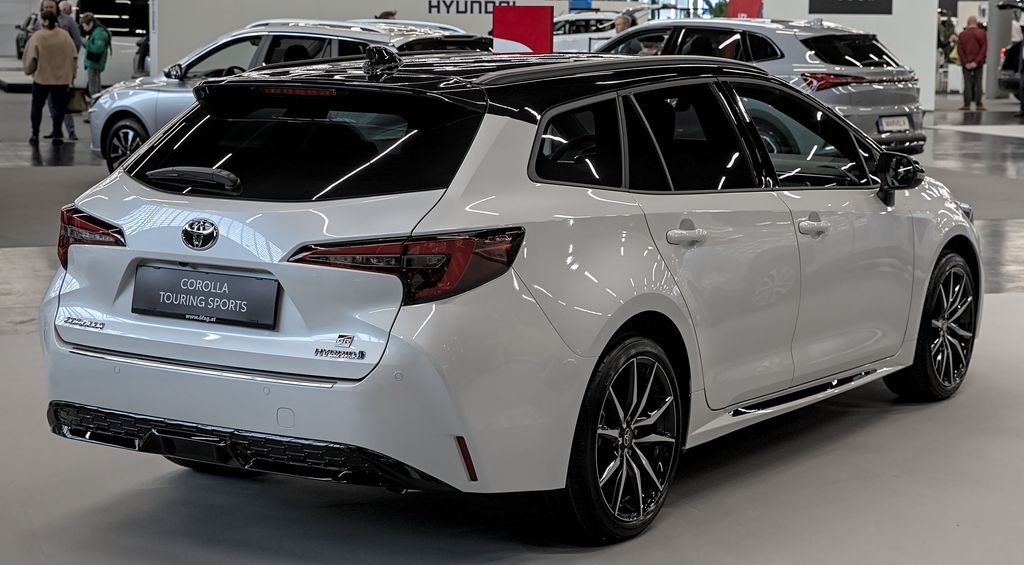
5. **Interior Design & Quality**
The interior design and quality of the 2025 Toyota Corolla Hybrid evoke mixed reactions, reflecting both Toyota’s reputation for solidity and some visible cost-saving measures. Bill G, a discerning owner, was particularly impressed, noting that “the doors shut with a good quality sounding thud.” He further praised the overall fit and finish, stating it was “first rate” and, as an individual who is “extremely picky,” he found “nothing to fault.” This perspective highlights a sense of robust construction and attention to detail for some components.
Regarding the aesthetics, Bill G provided valuable insights into the interior appearance, especially for the light gray option. He mentioned that “The Toyota website does not have good pictures of the interiors of the Corolla, especially the light gray interior, which ours has.” He clarified that while the website accurately shows the seats in a “two tone” design, it fails to illustrate that “the bottom half of the dash and the upper doors are trimmed in light gray.” He suggested that for a more accurate visual representation, prospective buyers should “click on the Macadamia color and you will see how the light gray interior will truly look, except of course for the color.” This detail is crucial for buyers who value a precise understanding of their vehicle’s interior aesthetics prior to purchase.
Despite positive individual experiences, our general assessment at Car and Driver points to certain areas where “cost-cutting” is evident. We’ve noted that this becomes apparent “when you examine the interior’s material quality and relative lack of sound insulation.” This suggests that while basic construction might be solid, some of the plastics or finishes in less prominent areas might feel less premium than desired, contributing to a less refined cabin ambiance than some competitors offer.
Reinforcing this observation, another owner provided a starkly negative account, complaining that “you can hear cracks and creaks in the interior like no other.” This implies that over time, or perhaps due to less stringent assembly tolerances in some units, the interior components may develop audible imperfections, detracting from the perceived quality and longevity that Toyota is often known for. These conflicting reports underscore that interior quality can be a subjective and potentially inconsistent aspect of the 2025 Corolla Hybrid.
Read more about: Beyond Square Footage: Unpacking the Evolving American Dream as More Homeowners Rethink Downsizing
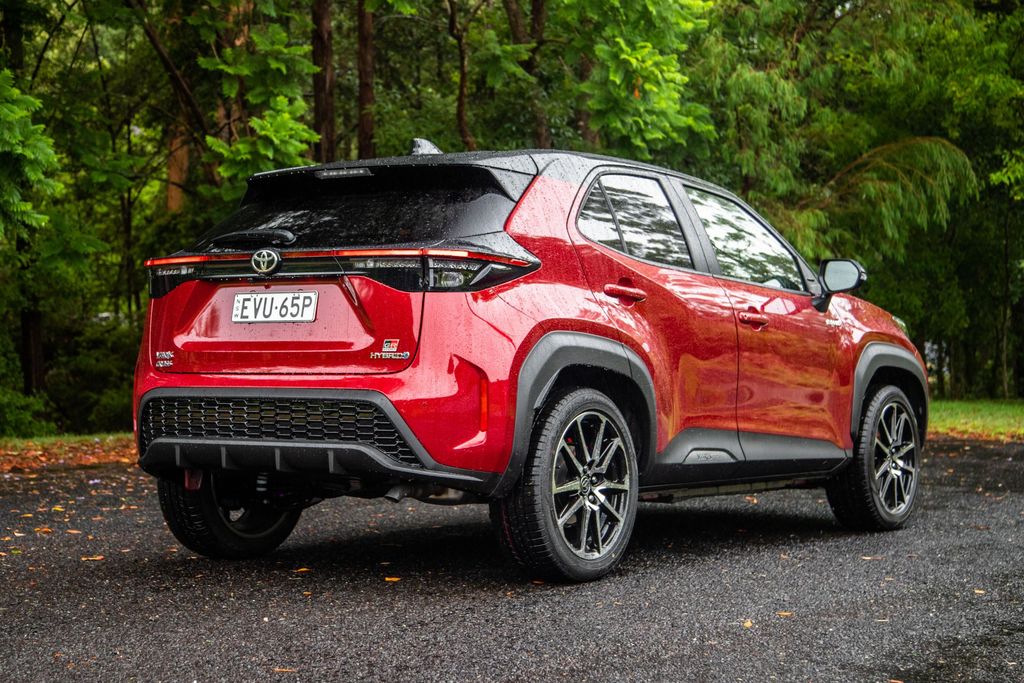
6. **Seating & Ergonomics**
The seating and ergonomic design of the 2025 Toyota Corolla Hybrid appear to offer a generally comfortable experience for a range of occupants, particularly for its class. Bill G, a key owner, found the manual seat adjustments perfectly adequate, stating, “Certainly power seats are nice, but I can get enough adjustment with the manual seat just fine.” This indicates that despite the lack of some upmarket features, the fundamental adjustability allows for satisfactory positioning for most drivers.
Addressing the needs of diverse body types, Bill G reported positive findings: “I am 5’11”, 240 lbs and my wife is 5’4″ and we both find very comfortable seating positions.” He further elaborated on comfort during extended periods, mentioning that while he hasn’t taken the car on long trips, he’s had “quite a bit of seat time waiting on my wife during her shopping outings and I haven’t been uncomfortable.” This suggests the seats offer good support for daily commuting and even short waiting periods, which are common in city driving.
Ingress and egress, often a concern for drivers with mobility issues, also received a favorable review from Bill G, who noted it was “not that difficult either for an old guy with stiff joints.” This ease of entry and exit contributes significantly to the car’s practicality as a daily driver, especially in urban settings where frequent stops and exits are common.
Regarding rear passenger space, Bill G confirmed that “The back seat has enough room for me to sit behind the driver’s seat adjusted for me, although we don’t usually have anyone in the back seat.” This indicates that while not expansive, the rear cabin can accommodate an adult, even behind a taller driver, for shorter journeys. However, a critical owner’s sentiment, “the car is small. if you’re a bigger person, you don’t want this car,” points to the fact that while acceptable for some, overall interior dimensions might feel restrictive for larger individuals or families on longer trips, emphasizing its compact nature.
Read more about: The 2025 BMW 3 Series: Mastering the Art of Evolution in a Competitive Landscape
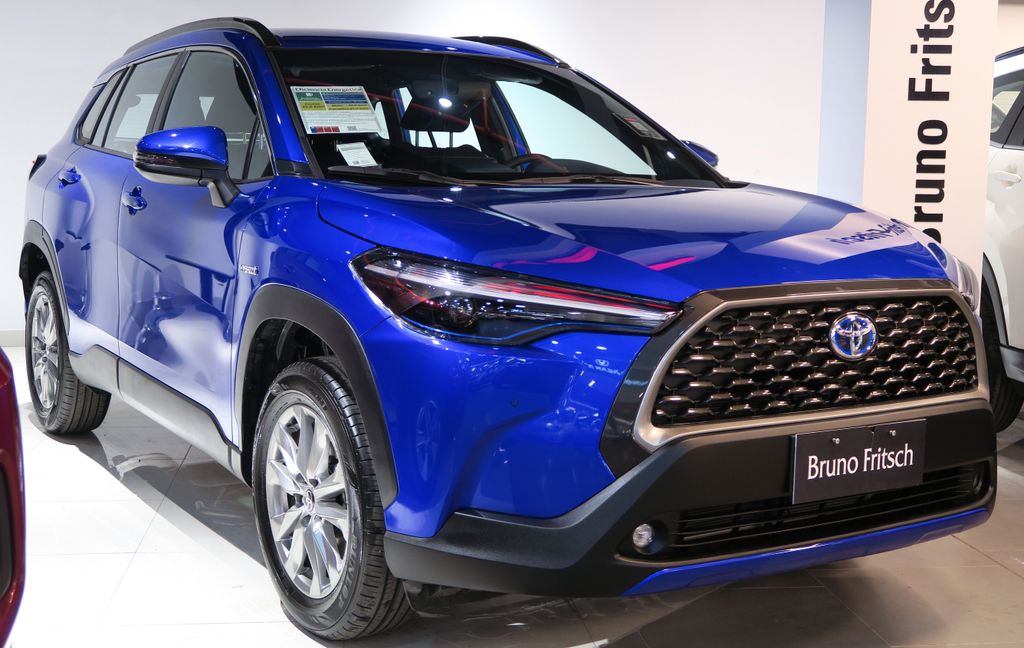
7. **Cargo Space & Practicality**
For a compact hybrid, the 2025 Toyota Corolla Hybrid offers a respectable degree of cargo space and practicality, though it faces stiff competition within its segment. One owner praised its versatility, noting that “The back seat folds down to give even more cargo room to the very spacious trunk.” This flexible arrangement allows owners to significantly expand the usable cargo volume, making it more accommodating for larger items or grocery hauls that exceed the capacity of the standard trunk.
However, while the trunk itself is described as “very spacious” by an owner, our objective analysis at Car and Driver reveals that the Corolla’s interior, including its cargo and passenger room, is relatively tight when compared to some of its direct peers. We explicitly state, “No one expects a Corolla to feel like a Sequoia inside, but even compared to its peers, the Corolla’s interior is tight.” This acknowledges its compact class but points out that even within that category, it’s not a leader in volumetric efficiency.
Specifically, when looking at key competitors, we anticipate that “Assuming nothing changes for 2025, the Hyundai Elantra Hybrid has more legroom and cargo space.” Furthermore, Toyota’s own “Prius” is also noted to offer more interior legroom and cargo capacity. These comparisons are vital for prospective buyers who might be cross-shopping and have specific needs for passenger comfort or luggage hauling capability. While functional for most city errands, those regularly transporting multiple passengers or bulky items might find these dimensional constraints a limiting factor in the Corolla Hybrid.
Read more about: The Ultimate 2025 Guide: Top 10 Fuel-Efficient Road Trip Vehicles Balancing Performance, Space, and Unrivaled Comfort
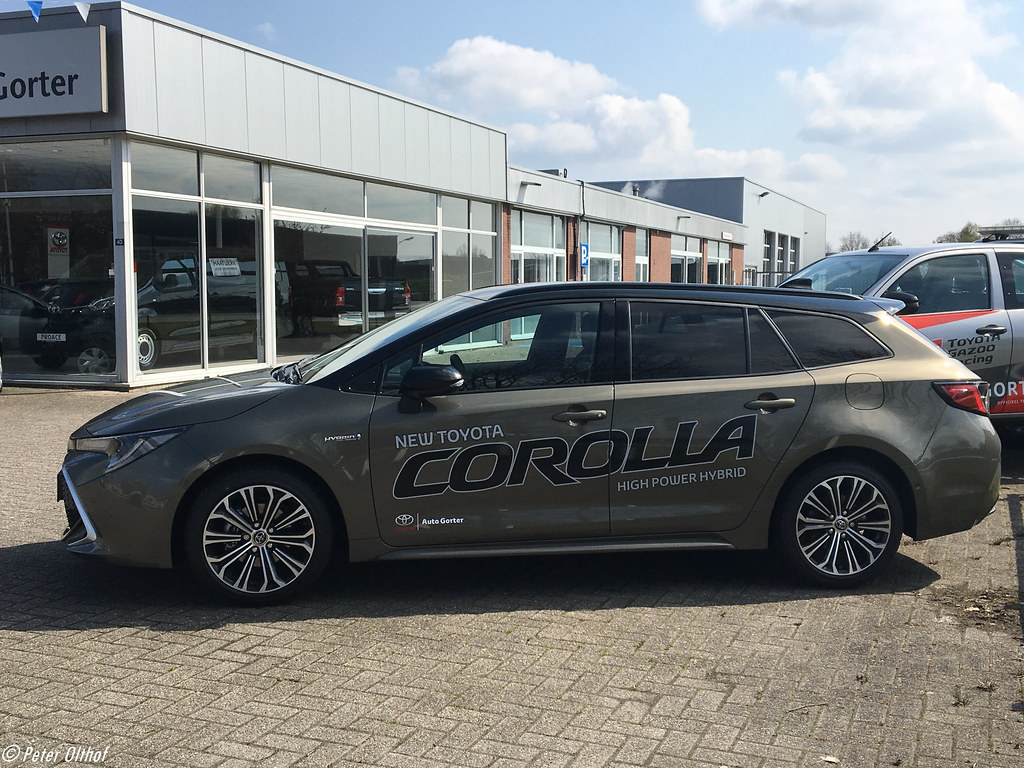
8. **Advanced Technology**
For the discerning driver navigating a modern city, integrated technology is no longer a luxury but a necessity. The 2025 Toyota Corolla Hybrid steps up with a suite of digital features, beginning with its infotainment system. Base Corolla Hybrid LE models come equipped with an 8.0-inch touchscreen, a respectable size that serves as the central hub for connectivity. Critically, Apple CarPlay and Android Auto are standard across the lineup, ensuring seamless smartphone integration right from the start, though navigation typically requires a subscription service.
Moving up the trim ladder, the 2025 model offers significant enhancements. Buyers opting for the Corolla Hybrid SE with the Premium package, or the top-tier XLE, will benefit from a larger 10.5-inch infotainment touchscreen. This upgrade not only provides a more expansive visual interface but also introduces wireless Apple CarPlay and Android Auto, a convenience that declutters the cabin and enhances the user experience, especially in a city where quick connections are paramount.
Beyond the central display, the Corolla Hybrid provides practical digital amenities. The base trim features a 4.2-inch gauge cluster display, while higher trims elevate this to a more informative 7.0-inch screen, presenting key driving data with greater clarity. Furthermore, USB-C charge ports are thoughtfully integrated in both rows of seating, ensuring that all occupants can keep their devices powered. For those seeking premium features, higher trims also offer a wireless charging pad and an immersive nine-speaker JBL audio system, catering to audiophiles and tech enthusiasts alike.
An owner, Bill G, highlighted the practical functionality of the wireless Android Auto, noting its generally reliable performance. He observed that while it occasionally requires a manual connection if the pairing process is interrupted—especially when engaging reverse during startup—it has never failed to connect. Once established, the connection remains stable, supporting consistent use of navigation apps like Maps and Waze, alongside streaming services such as Amazon Music or Spotify, an essential for any modern commute.
Read more about: The Ultimate 2025 Guide: Top 10 Fuel-Efficient Road Trip Vehicles Balancing Performance, Space, and Unrivaled Comfort
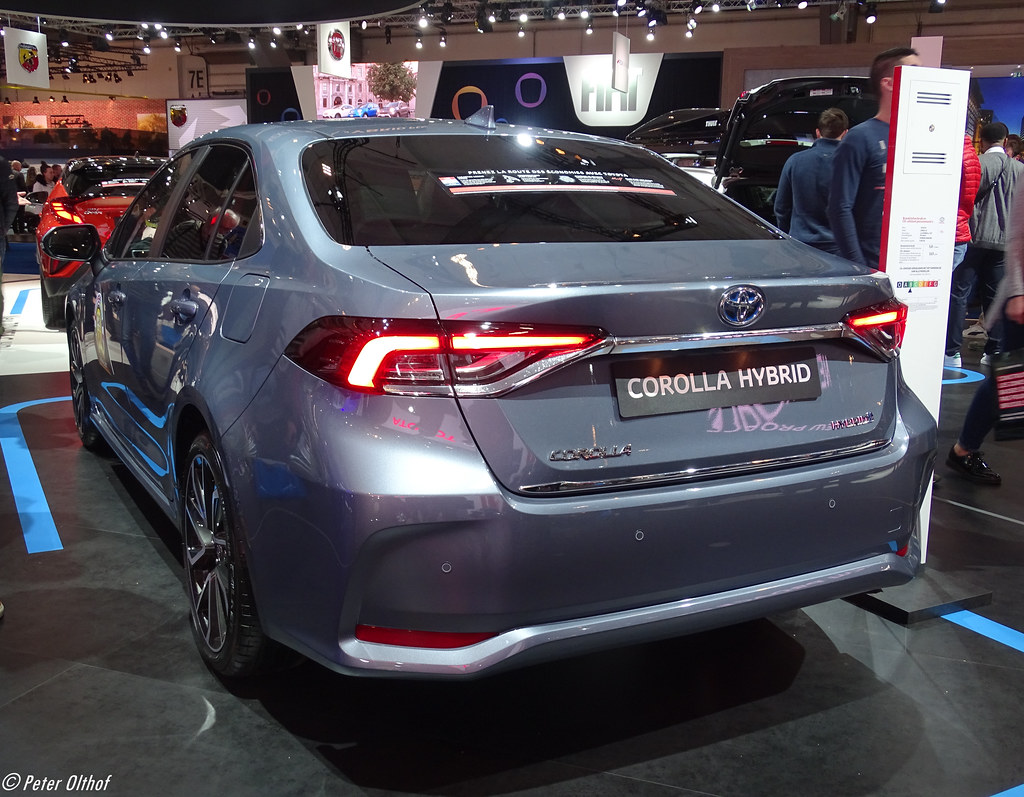
9. **Safety Suite**
Safety is paramount, particularly in the unpredictable environment of city driving, and the 2025 Toyota Corolla Hybrid makes a strong statement with its standard safety offerings. Toyota generously includes its Safety Sense 3.0 driver assistance features on every Corolla Hybrid. This comprehensive package means that even base models come equipped with crucial technologies such as emergency braking, adaptive cruise control, lane keep assist, and automatic high-beams, all designed to enhance driver awareness and mitigate potential hazards.
For those seeking an even more robust layer of protection, higher trim levels of the Corolla Hybrid further expand the safety suite. These variants add blind-spot monitoring and rear cross-traffic alert, invaluable aids when navigating congested urban streets, changing lanes, or reversing out of tight parking spots. These additional features provide a wider perspective on the vehicle’s immediate surroundings, helping to prevent collisions that might otherwise go unnoticed.
Indeed, the current generation Corolla has already established a commendable safety record. It was recognized as a 2023 IIHS Top Safety Pick, signifying its strong performance in various crash tests and its effective front crash prevention systems. Furthermore, the National Highway Traffic Safety Administration (NHTSA) awarded the Corolla a five-star overall rating, reinforcing its structural integrity and occupant protection capabilities in the event of an accident.
Despite these comprehensive safety credentials, one highly critical owner review erroneously claimed that the car “does not have safety features” and lamented the inability to “check your tire pressure in this car,” along with the absence of a blind spot feature on their particular model. It’s important to clarify that Toyota Safety Sense 3.0, including its foundational safety systems, is standard, and blind-spot monitoring is available on higher trims, directly contradicting some of these individual grievances. This discrepancy underscores the importance of consulting official specifications and thorough research for accurate information on safety features.
Read more about: Mastering Winter Roads: Your Essential Guide to Car Winterization and Preventing Costly Breakdowns
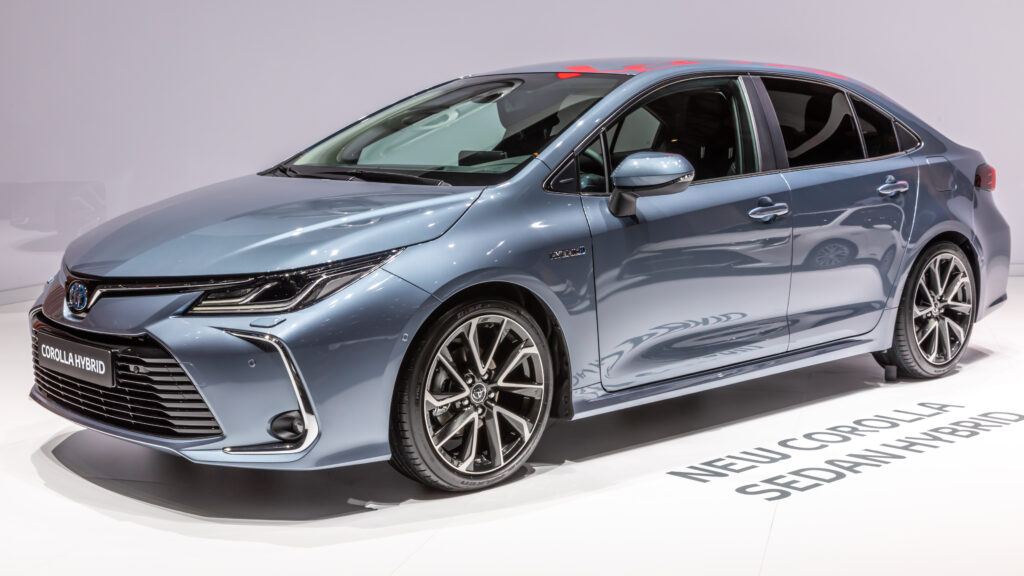
10. **Handling Dynamics**
The driving experience of the 2025 Toyota Corolla Hybrid, particularly its handling dynamics, presents a nuanced picture, influenced by both professional assessments and owner perspectives. From our perspective at Car and Driver, the Corolla Hybrid is described as “relatively pleasant to wind through corners.” This suggests a competent chassis that, while not overtly sporty, offers a predictable and stable feel when negotiating bends, which is a desirable trait for maintaining composure in city traffic.
An owner shared a similar sentiment regarding its agility, noting that “you can ride curves, and you can go fairly quick in the car.” This indicates that the vehicle possesses a certain nimbleness, allowing drivers to maneuver with confidence. However, this positive observation is immediately contrasted by the same owner’s strong criticism of the ride quality, attributing it to “low profile tires, and stuff suspension” that makes a comfortable commute “impossible.” They vividly describe “every single bump in the road feels like a crater” and that “you will feel your entire body come out of the seat with one bump,” leading to a sensation akin to “riding in an ATV.”
This jarring ride quality is further implicated in other handling issues. The critical owner reported that the car “needs an alignment super easily” not due to hitting potholes at speed, but “quite literally a bump will knock it out of alignment.” Such a recurring issue points to a potentially fragile or overly sensitive suspension setup that could lead to persistent maintenance concerns and diminish the driving pleasure, particularly in areas with less-than-perfect road surfaces.
Moreover, the Corolla Hybrid’s handling is described as being notably susceptible to external forces. The car is characterized as “light weight, so a spec of wind will knock it into the emergency lane,” which raises concerns about stability at higher speeds or in windy conditions. Compounding this, its performance in adverse weather conditions is deemed unsatisfactory, with the owner stating, “it’s not good in the rain, and it is surely not good in snow.” These limitations suggest that while the Corolla Hybrid might offer reasonable handling in ideal city conditions, its capabilities are significantly compromised when faced with challenging roads or environmental factors.
Read more about: The Ultimate 2025 Guide: Top 10 Fuel-Efficient Road Trip Vehicles Balancing Performance, Space, and Unrivaled Comfort
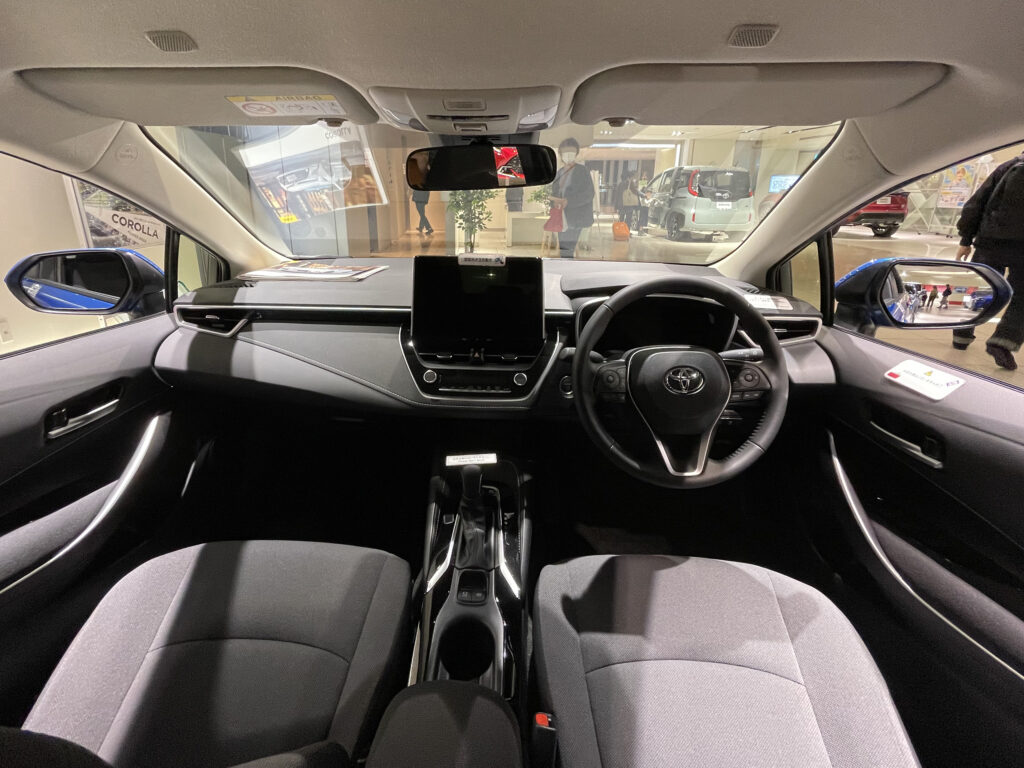
11. **Exterior Design Updates**
While the 2025 Toyota Corolla Hybrid largely carries over the design language of its recent predecessors, there are a few specific updates and observations concerning its exterior. For the 2025 model year, Toyota has introduced “New badging on rear of vehicle,” a subtle yet noticeable refresh that helps distinguish it from prior iterations. Additionally, the “Nightshade Edition package” has been discontinued, streamlining the available aesthetic options and potentially shifting focus towards other trim-specific appearances.
While an owner initially “fell in love with this car when I first got it,” suggesting a generally pleasing initial aesthetic, the long-term experience for some has been less favorable concerning build quality. A highly critical owner reported that after three years and 74,000 miles, “parts on the exterior are breaking for no reason.” They explicitly stated, “I haven’t hit anything, I haven’t ran into a hole or anything, there are pieces that just fall off, due to the cheaply made car.” This raises significant concerns about the durability of certain exterior components over time, challenging the perception of Toyota’s renowned build quality.
The most alarming detail from this critical review involves the front bumper, with the owner claiming that “the entire front bumper is about to come off, because ‘the clips are bad.'” This issue, persistent despite visits to shops and dealerships where “no one was able to pinpoint how the clips were bad, or why the clips are bad,” highlights a potential design or manufacturing flaw that can severely impact both the vehicle’s appearance and its structural integrity. Such a complaint suggests that the exterior’s long-term robustness might not always live up to expectations, which is a critical consideration for buyers looking for lasting value.
It is also worth noting that the competitive landscape and Toyota’s own product roadmap suggest future changes. Our analysis at Car and Driver recommends holding off on an urgent purchase, as “Toyota will likely introduce a next-gen Corolla with fresh styling, a superior powertrain, and better tech for 2026.” This implies that while the current model has seen minor updates, a more comprehensive aesthetic and technological overhaul is anticipated, potentially rendering the current exterior design less desirable in the near future for those prioritizing the latest look.
Read more about: Is the 2025 Buick Enclave Worth the Hype? An In-Depth Car and Driver Review of Buick’s Flagship SUV
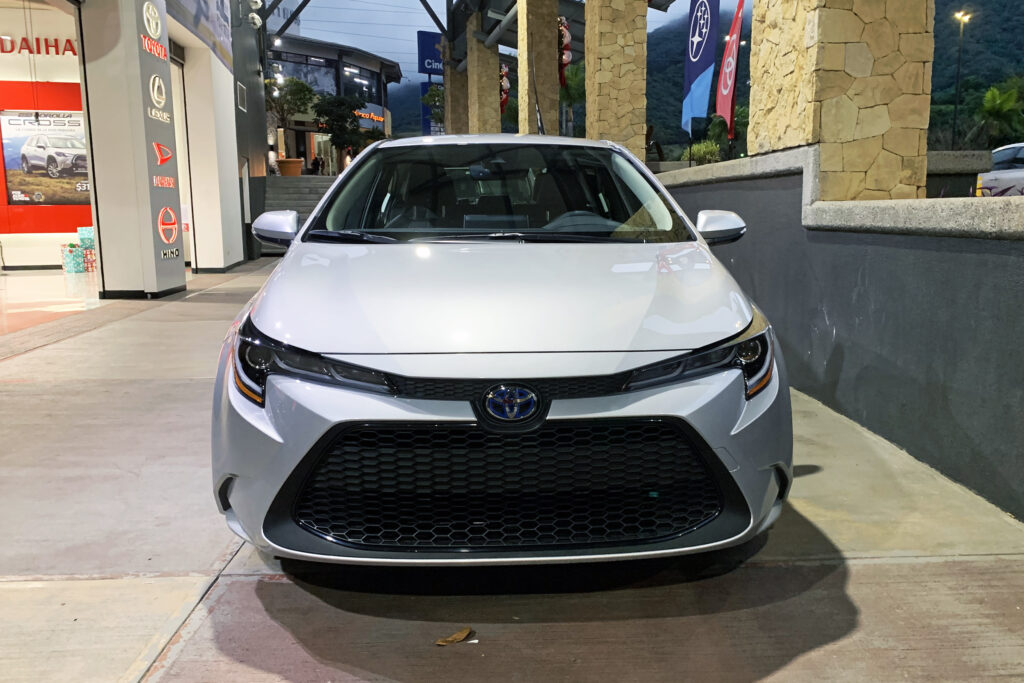
12. **Crucial Transmission Reliability Concerns**
Perhaps the most alarming and critical issue raised regarding the 2025 Toyota Corolla Hybrid, particularly as voiced by one long-term owner, revolves around its transmission reliability. This owner explicitly labeled it “THE BIG ISSUE,” detailing a catastrophic experience with the car’s Continuously Variable Transmission (CVT). While acknowledging their own oversight in not researching CVTs adequately, their trust in Toyota’s reputation for reliability was severely undermined by real-world failures that directly contradict the brand’s lauded durability.
The owner reported that at a mere 28,000 miles, the car’s transmission began slipping and ultimately failed while waiting at a red light. This incident necessitated a complete transmission replacement, a significant and costly repair for a relatively new vehicle. Such an early failure raises serious questions about the longevity and inherent robustness of the specific CVT unit utilized in the Corolla Hybrid, particularly when considering the typically high expectations placed on Toyota powertrains.
The transmission troubles did not end there. At 72,000 miles, the owner was informed that the replacement transmission was leaking fluid onto the axle. Despite being deemed safe to drive temporarily, it was replaced again at 74,000 miles to accommodate the owner’s extensive commute. This pattern of failure, with a second transmission exhibiting issues shortly after the first, painted a grim picture of the vehicle’s powertrain integrity and the challenges faced by owners relying on it for daily transportation.
Compounding the owner’s frustration, the *third* transmission, installed just two weeks prior, began leaking fluid yet again. This recurring issue was accompanied by the car almost stalling when going uphill and subsequently throwing a “steering abnormality” code. This series of events led to the owner’s vehement conclusion: “So now, three transmissions later, I’m exploding. never again toyota. their cvt transmissions are jokes, their ‘rare’ cars are jokes, and so are online ratings from bots. do. not. get. this. car. if you find one. they’re discontinued for a reason.” While this is a single, albeit severe, case, it represents a profound safety concern and a significant detractor from the overall value proposition, demanding serious consideration from potential buyers.
Read more about: 2025 Ford F-150 vs. Toyota Tundra: A Deep Dive into Towing, Power, and Capability
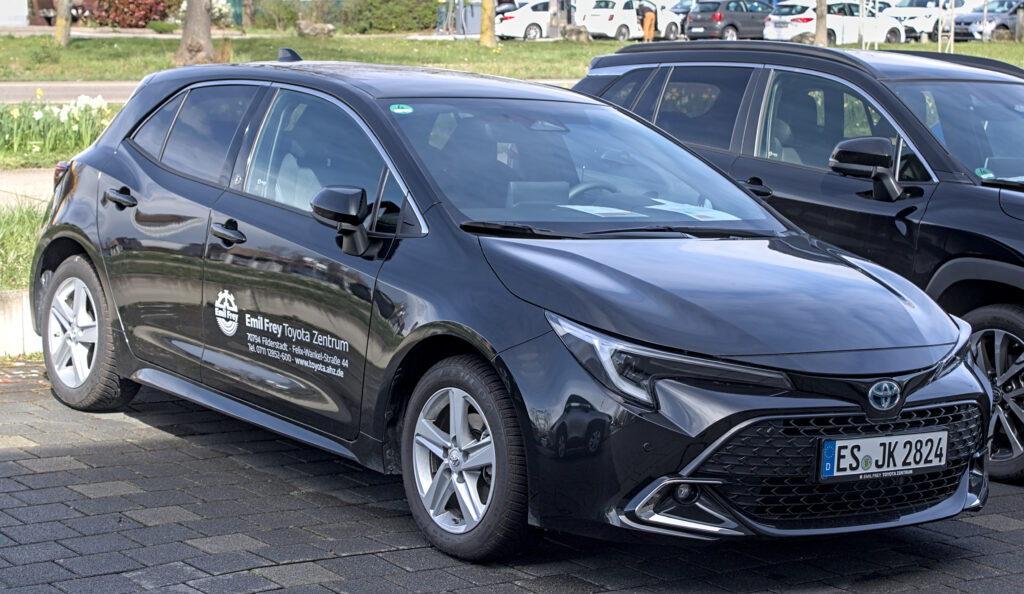
13. **Competitive Standing Against Rivals**
In the fiercely contested compact hybrid segment, the 2025 Toyota Corolla Hybrid faces a formidable array of competitors, both from rival brands and within Toyota’s own stable. Our analysis identifies its closest direct competitor as the hybrid version of the Hyundai Elantra. Beyond this, buyers frequently cross-shop it against other popular models such as Toyota’s own Corolla Cross Hybrid and the highly regarded Prius, as well as the Kia Niro hatchback, each offering a distinct blend of features and performance.
When placed head-to-head with these rivals, particularly the new-for-2024 Prius, the Corolla Hybrid reveals a significant performance disparity. While the Corolla Hybrid achieves a 0–60 mph acceleration time of 10.3 seconds (or 9.7 seconds with AWD), its sibling, the Prius, is notably brisker, hitting 60 mph in a mere 7.2 seconds. This 1.5 to 3-second difference can be genuinely felt in real-world driving, especially when merging onto highways or attempting quick overtakes, situations where the Corolla Hybrid’s “lackluster performance” could be a noticeable hindrance.
Fuel efficiency, a cornerstone of the hybrid appeal, also shows a competitive, though not leading, position for the Corolla Hybrid. It delivers an impressive EPA-estimated “up to 50/43 mpg city/highway,” a substantial improvement over its conventional counterpart. However, the Prius still holds an edge, boasting an even more remarkable “up to 57/56 mpg.” This illustrates that while the Corolla Hybrid is highly efficient, there are options that push the boundaries of hybrid economy further within the same brand.
Furthermore, in terms of interior space, the Corolla Hybrid contends with some limitations. Compared to key rivals, particularly the Hyundai Elantra Hybrid and Toyota’s own Prius, the Corolla’s interior is described as “tight.” Both the Elantra Hybrid and the Prius are anticipated to offer more legroom and cargo space, an important consideration for buyers who prioritize passenger comfort or carrying capacity. While the Corolla Hybrid offers a compelling value proposition as a more “accessible” and “affordable” option than the Prius, our recommendation suggests that “if you can stretch an extra couple grand, a base Prius is a worthwhile pick over a loaded Corolla,” highlighting the superior performance, efficiency, and interior room available for a modest price increase.
Read more about: 2025 Lincoln Navigator: Is This Still America’s Ultimate Luxury SUV?
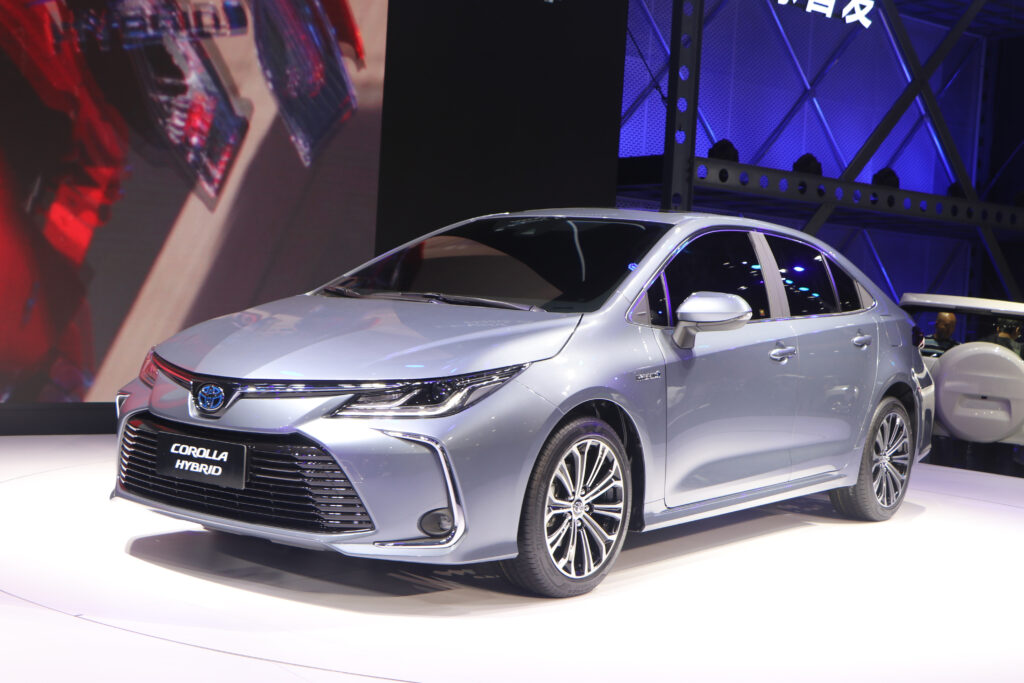
14. **Considerations for Future Model Changes**
Prospective buyers of the 2025 Toyota Corolla Hybrid must also weigh the context of its likely position within Toyota’s product cycle. Our expert assessment at Car and Driver offers a crucial piece of advice for those not in urgent need of a new vehicle: “unless your need for new wheels is urgent, we recommend holding off as Toyota will likely introduce a next-gen Corolla with fresh styling, a superior powertrain, and better tech for 2026.” This forward-looking guidance implies that the current iteration of the Corolla Hybrid may soon be superseded by a significantly updated model, a factor that could influence both long-term satisfaction and resale value.
This anticipated generational shift suggests that while the 2025 model brings some minor updates, it may not represent the cutting edge of Toyota’s design, engineering, or technological advancements. A “next-gen Corolla” promising “fresh styling” indicates that the current exterior design, while functional, might quickly appear dated compared to its successor. For buyers prioritizing the latest aesthetics and features, waiting could yield a more contemporary and potentially more appealing vehicle.
Moreover, the mention of a “superior powertrain” for the 2026 model directly addresses one of the current Corolla Hybrid’s acknowledged weaknesses: its acceleration. A new powertrain could rectify the performance deficit that we’ve noted, offering a more dynamic and responsive driving experience—a significant improvement for city driving where quick bursts of power can be beneficial. Coupled with “better tech,” the future model promises enhancements across multiple critical areas that could make it a more well-rounded and competitive offering.
For practical buyers, this future outlook presents a dilemma. While the 2025 Corolla Hybrid offers a solid, efficient, and affordable package, the looming prospect of a comprehensively upgraded model in the very near future means that today’s purchase might soon feel less advanced. Weighing the immediate need against the potential benefits of waiting for a next-generation vehicle with improved styling, performance, and technology is a critical decision point for anyone considering the Corolla Hybrid, especially in a rapidly evolving automotive market.
The 2025 Toyota Corolla Hybrid carves out a significant niche as an impressively efficient and accessible compact four-door, particularly well-suited for the stop-and-go rhythms of city life. Its commendable fuel economy stands out as a clear advantage, promising substantial savings at the pump, while its comprehensive standard safety suite offers peace of mind in congested environments. However, our deep dive reveals a vehicle that, while likable, is not without its compromises. The acceleration falls short against key rivals, the interior, though functional, is tight and shows signs of cost-cutting in material quality, and the ride comfort can be polarizing, often transmitting road imperfections harshly.
Crucially, the potential for significant long-term transmission reliability issues, as detailed by a highly critical owner, presents a serious consideration that challenges Toyota’s otherwise sterling reputation. Furthermore, when juxtaposed against increasingly competitive rivals like the Hyundai Elantra Hybrid and even Toyota’s own Prius, the Corolla Hybrid finds itself outmatched in certain performance, space, and ultimate efficiency metrics. The looming prospect of a next-generation Corolla arriving in 2026 with promised advancements in styling, powertrain, and technology adds another layer of complexity to the buying decision, suggesting that patience might yield a more refined and capable urban companion.
Read more about: Is the 2025 Buick Enclave Worth the Hype? An In-Depth Car and Driver Review of Buick’s Flagship SUV
Ultimately, the 2025 Toyota Corolla Hybrid is a pragmatic choice for the budget-conscious urban driver who prioritizes fuel efficiency and core reliability above all else. Its accessible price point and solid standard features make it a compelling workhorse. Yet, for those who can stretch their budget slightly, or for whom performance, a truly premium interior, or the latest technology are higher priorities, waiting for the next generation or exploring alternatives within its competitive set might offer a more satisfying and enduring ownership experience in the bustling city scape.


